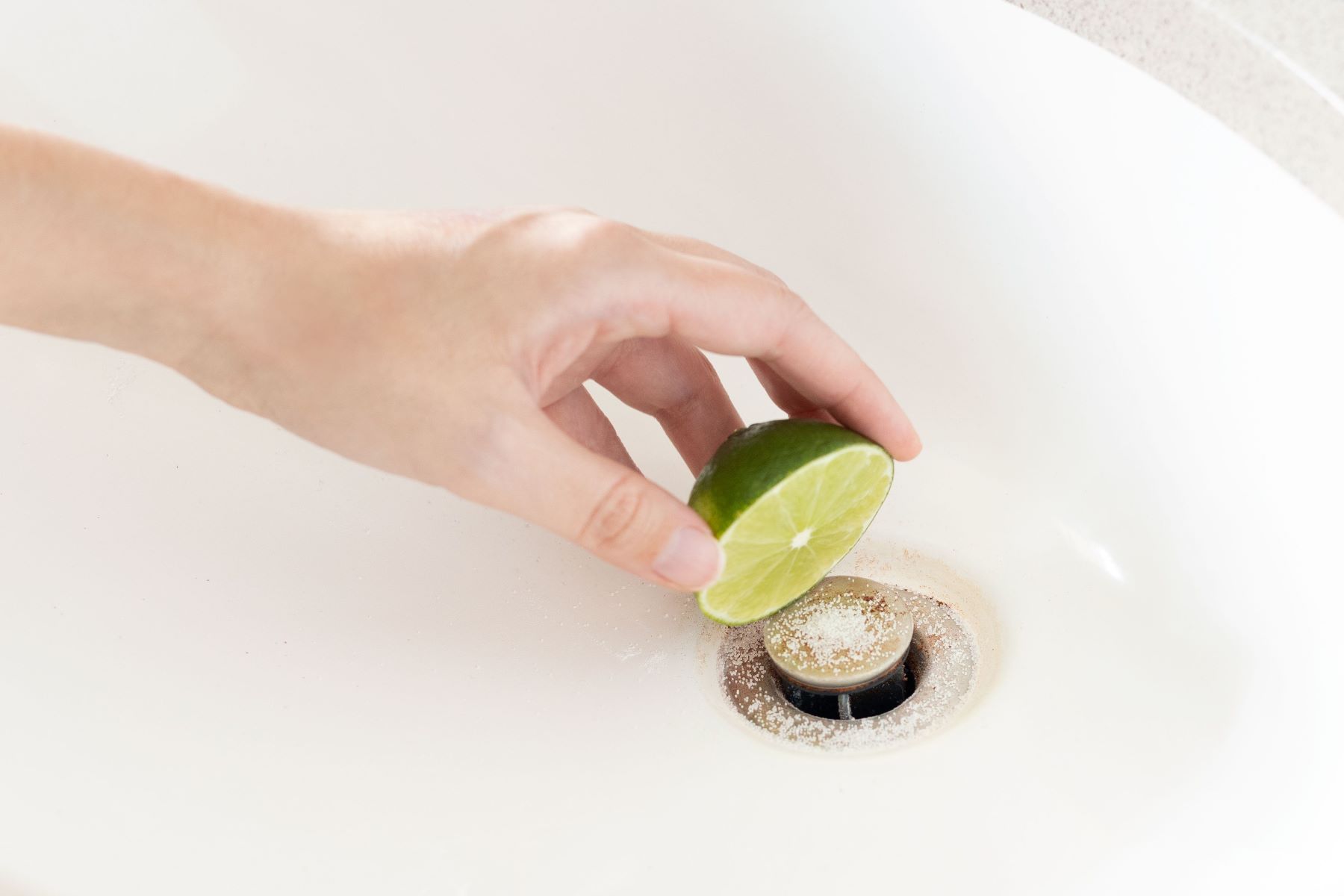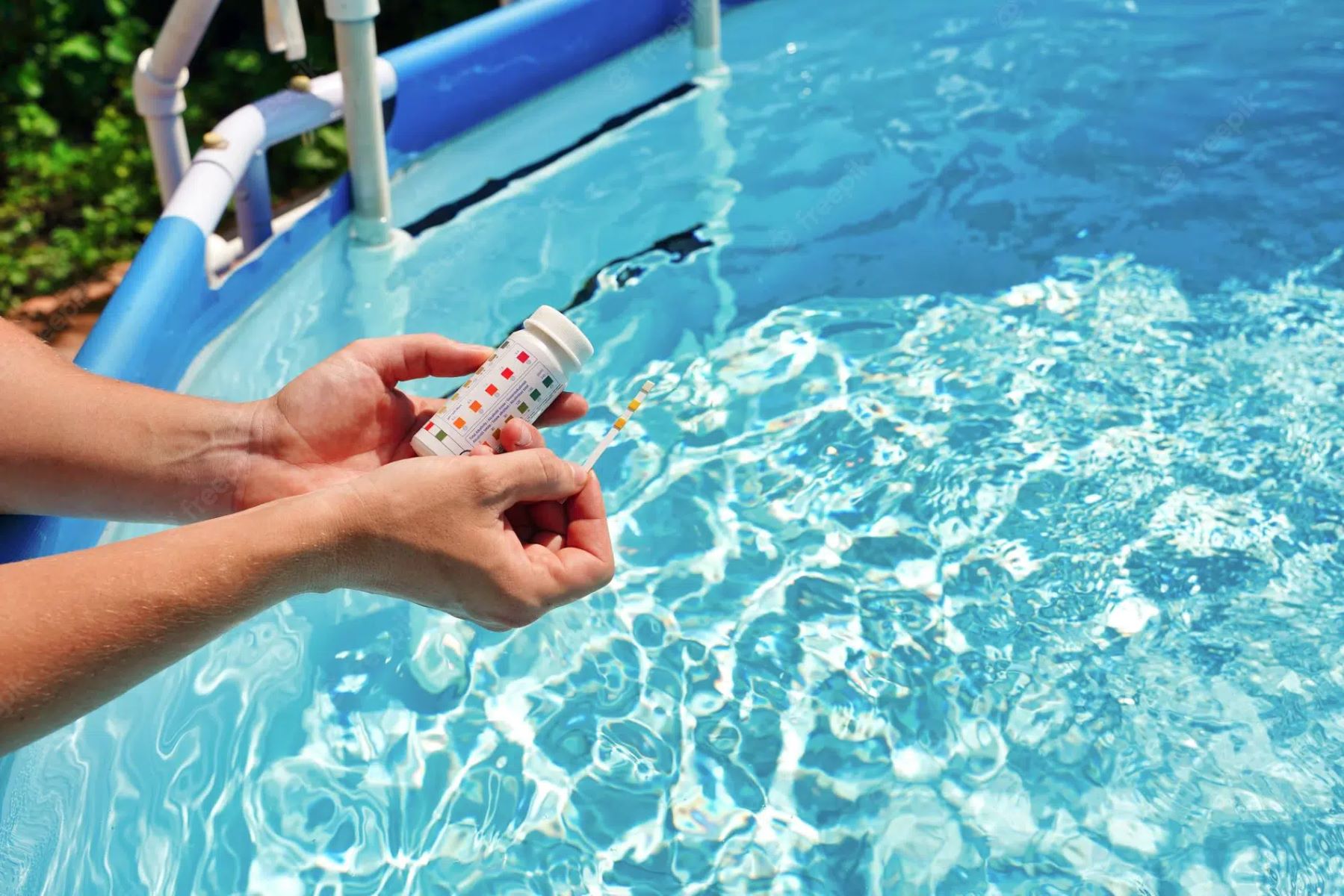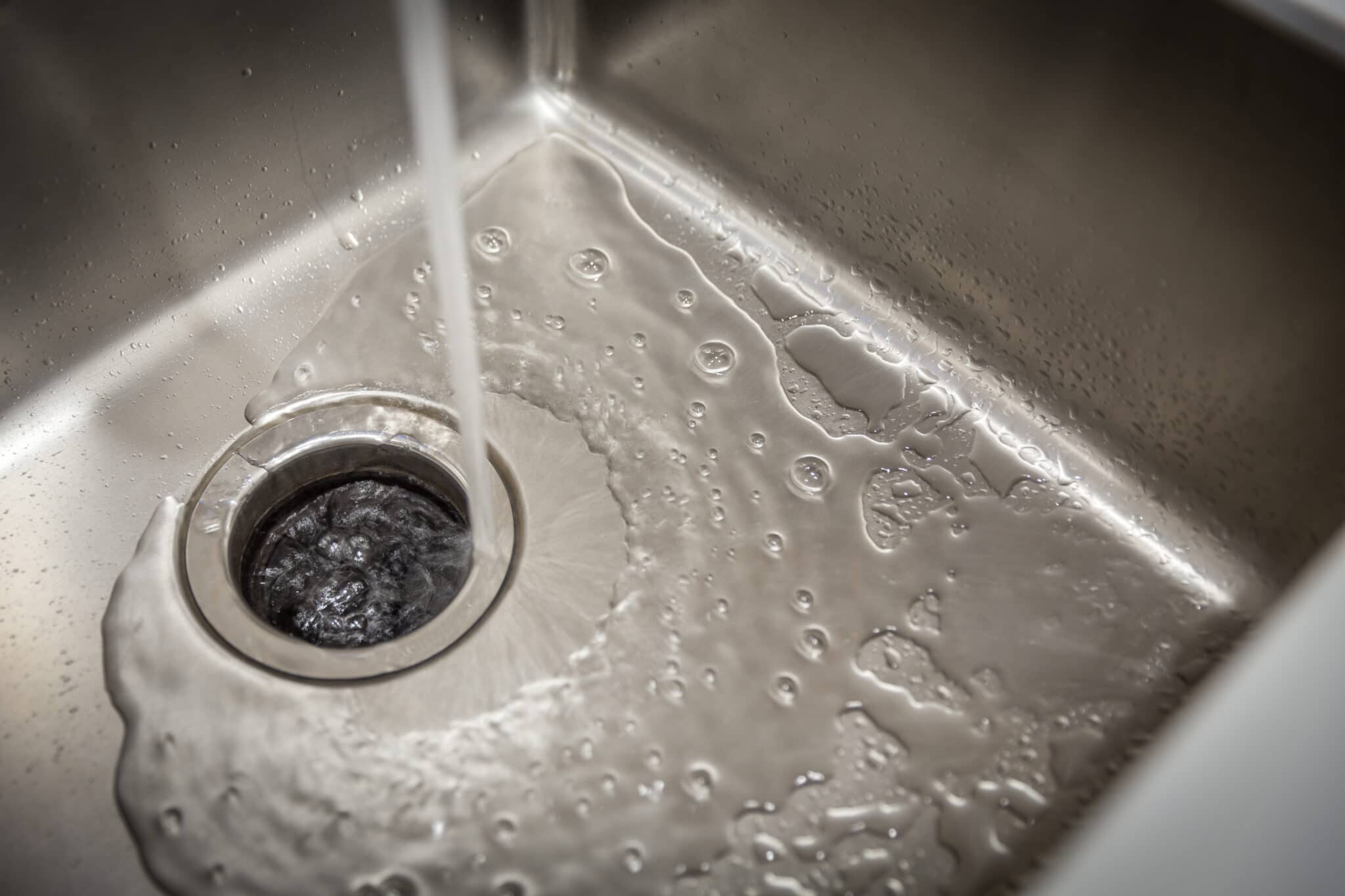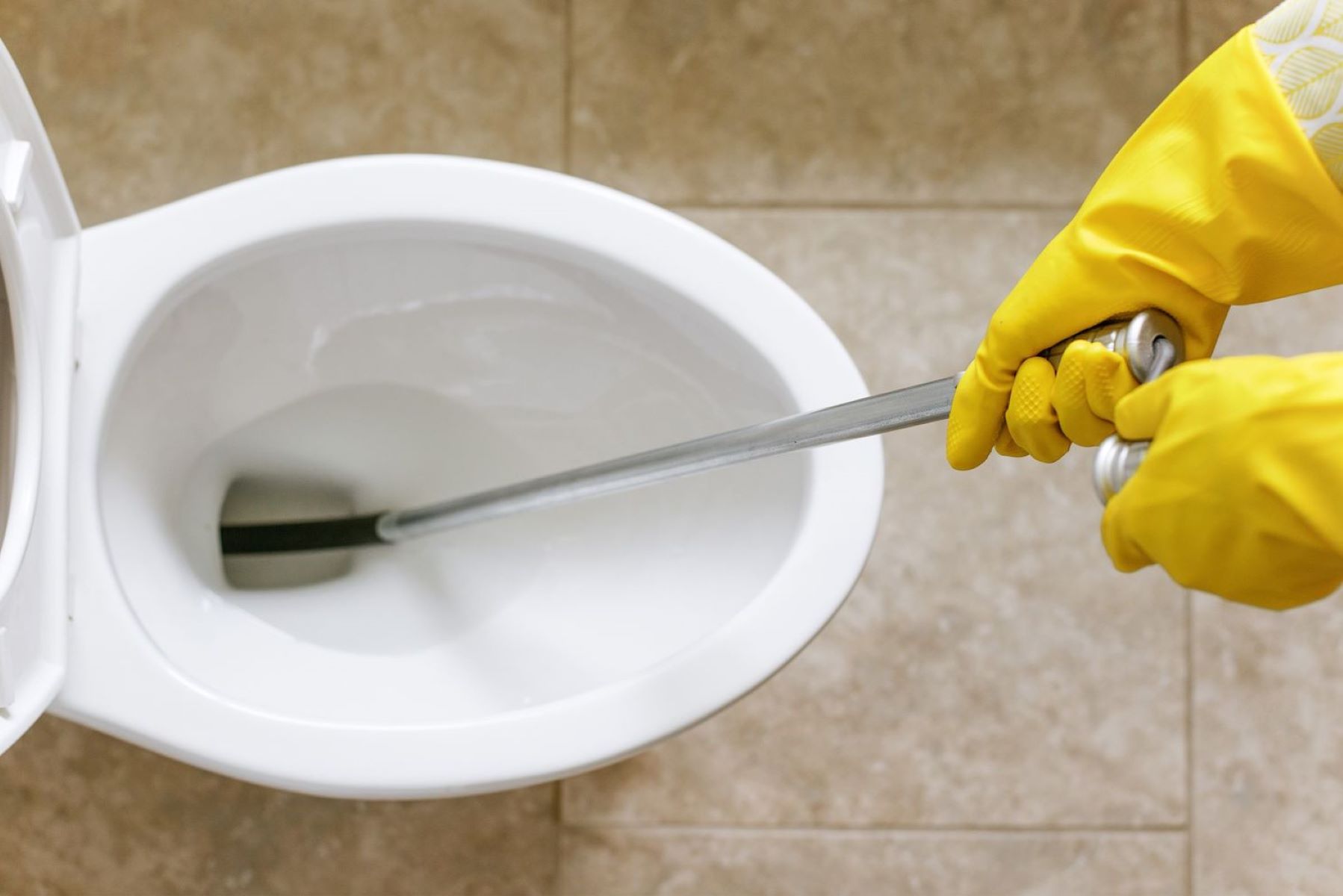Home>Home and Garden>10 Natural Ways To Banish Rust Stains In Toilets And Sinks


Home and Garden
10 Natural Ways To Banish Rust Stains In Toilets And Sinks
Published: January 10, 2024
Discover 10 natural methods to effectively remove rust stains from toilets and sinks in your home and garden. Say goodbye to unsightly stains with these eco-friendly solutions.
(Many of the links in this article redirect to a specific reviewed product. Your purchase of these products through affiliate links helps to generate commission for Regretless.com, at no extra cost. Learn more)
Table of Contents
Introduction
Rust stains in toilets and sinks are not only unsightly but also frustrating to deal with. They can accumulate over time, making the affected surfaces look unkempt and unhygienic. However, there's no need to resort to harsh chemicals or expensive cleaning products to banish these stubborn stains. In fact, there are several natural and effective methods that can help you eliminate rust stains and restore the sparkle to your bathroom and kitchen fixtures.
By leveraging the power of common household items such as lemon juice, baking soda, vinegar, and hydrogen peroxide, you can tackle rust stains without exposing yourself to potentially harmful chemicals. Not only are these natural remedies safer for you and the environment, but they are also often more cost-effective than commercial cleaners.
In this article, we'll explore ten natural ways to banish rust stains in toilets and sinks, providing you with step-by-step instructions and insightful tips to ensure successful stain removal. From creating homemade cleaning pastes to harnessing the oxidizing properties of hydrogen peroxide, you'll discover how to combat rust stains using readily available ingredients. Whether you're dealing with a minor discoloration or a more stubborn rust buildup, these methods offer gentle yet powerful solutions to restore the shine and cleanliness of your bathroom and kitchen fixtures.
So, if you're ready to bid farewell to those pesky rust stains and embrace a more natural approach to cleaning, let's dive into these effective remedies that will leave your toilets and sinks looking as good as new.
Lemon juice and salt
A simple yet potent combination, lemon juice and salt can work wonders in removing rust stains from toilets and sinks. The natural acidity of lemon juice, coupled with the abrasive texture of salt, creates a powerful cleaning agent that can effectively tackle rust discoloration.
To utilize this method, begin by squeezing fresh lemon juice into a small bowl. Then, add an ample amount of salt to the juice, creating a thick paste. The abrasive nature of salt aids in scrubbing away the rust stains, while the acidic properties of lemon juice facilitate the breakdown of the rust particles.
Once the paste is prepared, apply it directly onto the affected areas in the toilet or sink. Using a scrub brush or sponge, gently work the paste into the stains, ensuring thorough coverage. Allow the mixture to sit for at least 30 minutes, allowing the natural cleaning properties to take effect.
After the designated time has passed, use the scrub brush to vigorously scrub the treated areas. The combination of lemon juice and salt will work to lift the rust stains, revealing cleaner and brighter surfaces underneath. For more stubborn stains, you may need to repeat the process or leave the paste on for a longer duration before scrubbing.
Once the stains have been effectively lifted, rinse the area with water to remove any residual paste. The result should be noticeably improved, with the rust stains significantly diminished or completely eradicated.
This natural approach not only effectively removes rust stains but also leaves behind a fresh, citrusy scent, making it a pleasant and eco-friendly cleaning option. Additionally, the absence of harsh chemicals ensures that this method is gentle on both the environment and the surfaces being cleaned.
By harnessing the natural cleaning properties of lemon juice and the abrasive texture of salt, you can bid farewell to stubborn rust stains in your toilets and sinks, restoring a clean and polished look to these essential fixtures in your home.
Baking soda and vinegar
Baking soda and vinegar, two staple ingredients in many households, are renowned for their versatility in cleaning and deodorizing various surfaces. When combined, these two powerhouse items form a potent cleaning solution that can effectively tackle rust stains in toilets and sinks.
To harness the cleaning power of baking soda and vinegar, begin by creating a paste. In a small bowl, mix baking soda with enough vinegar to form a thick, spreadable paste. The chemical reaction between the baking soda and vinegar produces carbon dioxide bubbles, which help loosen and lift the rust stains from the affected surfaces.
Once the paste is prepared, apply it generously to the rust-stained areas in the toilet or sink. Use a sponge or brush to ensure thorough coverage and gently work the paste into the stains. Allow the paste to sit for at least 30 minutes, allowing the bubbling action to break down the rust particles and penetrate the affected areas.
After the designated time has elapsed, use a sponge or brush to scrub the treated areas. The mild abrasive nature of the baking soda, combined with the bubbling action of the vinegar, effectively works to dislodge and lift the rust stains, revealing cleaner surfaces underneath. For more stubborn stains, you may need to leave the paste on for a longer duration before scrubbing.
Once the stains have been effectively lifted, rinse the area with water to remove any residual paste. The result should be visibly improved, with the rust stains significantly diminished or completely removed.
The combination of baking soda and vinegar not only effectively removes rust stains but also neutralizes odors and disinfects the treated surfaces. This natural cleaning method is gentle on the environment and safe for use in homes with children and pets, making it a versatile and family-friendly cleaning solution.
By harnessing the natural cleaning properties of baking soda and vinegar, you can effectively banish rust stains from your toilets and sinks, restoring a pristine and hygienic appearance to these essential fixtures in your home.
Borax and lemon juice paste
When it comes to combating rust stains in toilets and sinks, the combination of borax and lemon juice forms a powerful cleaning paste that can effectively tackle stubborn discoloration. Borax, a naturally occurring mineral compound, possesses excellent cleaning properties and is often used as a gentle yet potent cleaning agent. When combined with the acidic and antibacterial properties of lemon juice, this dynamic duo becomes a formidable force against rust stains.
To create the borax and lemon juice paste, start by mixing a sufficient amount of borax with freshly squeezed lemon juice in a small bowl. The goal is to achieve a thick and spreadable consistency that can be easily applied to the rust-stained areas in the toilet or sink. The abrasive nature of borax, combined with the acidic properties of lemon juice, forms a potent cleaning solution that can effectively break down and lift rust stains from surfaces.
Once the paste is prepared, generously apply it to the affected areas, ensuring thorough coverage of the rust stains. Using a sponge or brush, gently work the paste into the stains, allowing the natural cleaning properties to take effect. The antibacterial properties of lemon juice also aid in disinfecting the treated surfaces, promoting a hygienic environment in your bathroom and kitchen.
After applying the paste, allow it to sit for at least 30 minutes, giving the cleaning agents ample time to penetrate and loosen the rust particles. This dwell time is crucial for the borax and lemon juice to work their magic in lifting the stubborn stains from the surfaces. For more severe or deeply ingrained rust stains, you may consider leaving the paste on for a longer duration to maximize its effectiveness.
Once the designated time has passed, use a sponge or brush to scrub the treated areas. The combination of borax and lemon juice will work to dislodge and lift the rust stains, revealing cleaner and brighter surfaces underneath. For particularly stubborn stains, you may need to repeat the process or leave the paste on for an extended period before scrubbing.
After the stains have been effectively lifted, rinse the area with water to remove any residual paste. The result should be visibly improved, with the rust stains significantly diminished or completely eradicated. This natural approach not only effectively removes rust stains but also leaves behind a fresh, citrusy scent, making it a pleasant and eco-friendly cleaning option.
By harnessing the natural cleaning properties of borax and lemon juice, you can effectively banish rust stains from your toilets and sinks, restoring a clean and polished look to these essential fixtures in your home. This method offers a gentle yet powerful solution that is safe for both your family and the environment, providing a natural and effective alternative to commercial rust cleaners.
Hydrogen peroxide
Hydrogen peroxide, a common household item known for its disinfecting and cleaning properties, can also be a highly effective solution for removing rust stains from toilets and sinks. Its oxidizing properties make it an excellent choice for tackling stubborn discoloration without the need for harsh chemicals.
To utilize hydrogen peroxide for rust stain removal, begin by ensuring that the affected areas are dry. Once dry, carefully pour or spray hydrogen peroxide directly onto the rust stains, ensuring thorough coverage. The oxidizing action of hydrogen peroxide works to break down the iron oxide present in the rust stains, effectively lifting and loosening the discoloration from the surfaces.
Allow the hydrogen peroxide to sit on the rust-stained areas for at least 10-15 minutes, providing ample time for the solution to penetrate and work its magic. During this dwell time, the oxidizing properties of hydrogen peroxide will actively react with the rust particles, facilitating the disintegration and removal of the stains.
After the designated time has passed, use a sponge or brush to gently scrub the treated areas. The combination of hydrogen peroxide and mechanical agitation will aid in dislodging and lifting the loosened rust stains, revealing cleaner surfaces underneath. For more stubborn or extensive rust stains, you may need to repeat the process or allow the hydrogen peroxide to sit for a longer duration before scrubbing.
Once the stains have been effectively lifted, rinse the area with water to remove any residual hydrogen peroxide. The result should be visibly improved, with the rust stains significantly diminished or completely eradicated. This natural approach not only effectively removes rust stains but also disinfects the treated surfaces, promoting a hygienic environment in your bathroom and kitchen.
Hydrogen peroxide offers a gentle yet powerful solution for rust stain removal, making it a safe and eco-friendly alternative to harsh chemical cleaners. Its natural oxidizing properties and disinfecting capabilities make it a versatile and effective option for restoring the cleanliness and luster of your toilets and sinks. By harnessing the cleaning power of hydrogen peroxide, you can effectively banish rust stains and maintain a pristine appearance in your home.
Cream of tartar and hydrogen peroxide
Combining cream of tartar with hydrogen peroxide creates a powerful and natural cleaning solution that is particularly effective in removing stubborn rust stains from toilets and sinks. Cream of tartar, also known as potassium bitartrate, is a mild acid that possesses gentle abrasive properties, making it an excellent choice for tackling tough stains without causing damage to surfaces. When paired with the oxidizing properties of hydrogen peroxide, this dynamic duo forms a formidable cleaning agent that can effectively lift and eliminate rust discoloration.
To create the cleaning paste, start by mixing a small amount of cream of tartar with hydrogen peroxide in a bowl. The goal is to achieve a thick and spreadable consistency that can be easily applied to the rust-stained areas in the toilet or sink. The mild abrasive nature of cream of tartar, combined with the oxidizing action of hydrogen peroxide, forms a potent cleaning solution that can effectively break down and lift rust stains from surfaces.
Once the paste is prepared, generously apply it to the affected areas, ensuring thorough coverage of the rust stains. Use a sponge or brush to gently work the paste into the stains, allowing the natural cleaning properties to take effect. The combination of cream of tartar and hydrogen peroxide works to dislodge and lift the rust stains, revealing cleaner and brighter surfaces underneath.
After applying the paste, allow it to sit for at least 30 minutes, giving the cleaning agents ample time to penetrate and loosen the rust particles. This dwell time is crucial for the cream of tartar and hydrogen peroxide to work their magic in lifting the stubborn stains from the surfaces. For more severe or deeply ingrained rust stains, you may consider leaving the paste on for a longer duration to maximize its effectiveness.
Once the designated time has passed, use a sponge or brush to scrub the treated areas. The combination of cream of tartar and hydrogen peroxide will work to dislodge and lift the rust stains, revealing cleaner and brighter surfaces underneath. For particularly stubborn stains, you may need to repeat the process or leave the paste on for an extended period before scrubbing.
After the stains have been effectively lifted, rinse the area with water to remove any residual paste. The result should be visibly improved, with the rust stains significantly diminished or completely eradicated. This natural approach not only effectively removes rust stains but also leaves behind a clean and refreshed appearance, making it a pleasant and eco-friendly cleaning option.
By harnessing the natural cleaning properties of cream of tartar and hydrogen peroxide, you can effectively banish rust stains from your toilets and sinks, restoring a clean and polished look to these essential fixtures in your home. This method offers a gentle yet powerful solution that is safe for both your family and the environment, providing a natural and effective alternative to commercial rust cleaners.
White vinegar and baking soda
White vinegar and baking soda, when combined, create a powerful and natural cleaning solution that can effectively tackle rust stains in toilets and sinks. Both white vinegar and baking soda are renowned for their versatility in cleaning and deodorizing various surfaces, making them ideal candidates for rust stain removal without the need for harsh chemicals.
To harness the cleaning power of white vinegar and baking soda, begin by creating a paste. In a small bowl, mix baking soda with a sufficient amount of white vinegar to form a thick, spreadable paste. The chemical reaction between the two ingredients produces carbon dioxide bubbles, which help loosen and lift the rust stains from the affected surfaces.
Once the paste is prepared, generously apply it to the rust-stained areas in the toilet or sink. Use a sponge or brush to ensure thorough coverage and gently work the paste into the stains. The mild abrasive nature of the baking soda, combined with the effervescent action of the vinegar, effectively works to dislodge and lift the rust stains, revealing cleaner surfaces underneath.
Allow the paste to sit on the rust-stained areas for at least 30 minutes, allowing the bubbling action to break down the rust particles and penetrate the affected areas. This dwell time is crucial for the white vinegar and baking soda to work their magic in lifting the stubborn stains from the surfaces.
After the designated time has elapsed, use a sponge or brush to scrub the treated areas. The combination of white vinegar and baking soda will work to dislodge and lift the rust stains, leaving the surfaces noticeably improved. For more stubborn stains, you may need to leave the paste on for a longer duration before scrubbing.
Once the stains have been effectively lifted, rinse the area with water to remove any residual paste. The result should be visibly improved, with the rust stains significantly diminished or completely removed.
The combination of white vinegar and baking soda not only effectively removes rust stains but also neutralizes odors and disinfects the treated surfaces. This natural cleaning method is gentle on the environment and safe for use in homes with children and pets, making it a versatile and family-friendly cleaning solution.
By harnessing the natural cleaning properties of white vinegar and baking soda, you can effectively banish rust stains from your toilets and sinks, restoring a pristine and hygienic appearance to these essential fixtures in your home.
Lemon and borax paste
The combination of lemon and borax creates a potent cleaning paste that is highly effective in removing stubborn rust stains from toilets and sinks. Borax, a naturally occurring mineral compound, is renowned for its exceptional cleaning properties and gentle abrasive nature, making it an ideal ingredient for tackling tough stains without causing damage to surfaces. When combined with the natural acidity of lemon, this dynamic duo forms a formidable force against rust stains, offering a safe and eco-friendly solution for restoring the cleanliness and luster of bathroom and kitchen fixtures.
To create the lemon and borax paste, start by mixing a sufficient amount of borax with freshly squeezed lemon juice in a small bowl. The goal is to achieve a thick and spreadable consistency that can be easily applied to the rust-stained areas in the toilet or sink. The abrasive nature of borax, combined with the acidic properties of lemon juice, forms a potent cleaning solution that can effectively break down and lift rust stains from surfaces.
Once the paste is prepared, generously apply it to the affected areas, ensuring thorough coverage of the rust stains. Use a sponge or brush to gently work the paste into the stains, allowing the natural cleaning properties to take effect. The antibacterial properties of lemon juice also aid in disinfecting the treated surfaces, promoting a hygienic environment in your bathroom and kitchen.
After applying the paste, allow it to sit for at least 30 minutes, giving the cleaning agents ample time to penetrate and loosen the rust particles. This dwell time is crucial for the borax and lemon juice to work their magic in lifting the stubborn stains from the surfaces. For more severe or deeply ingrained rust stains, you may consider leaving the paste on for a longer duration to maximize its effectiveness.
Once the designated time has passed, use a sponge or brush to scrub the treated areas. The combination of borax and lemon juice will work to dislodge and lift the rust stains, revealing cleaner and brighter surfaces underneath. For particularly stubborn stains, you may need to repeat the process or leave the paste on for an extended period before scrubbing.
After the stains have been effectively lifted, rinse the area with water to remove any residual paste. The result should be visibly improved, with the rust stains significantly diminished or completely eradicated. This natural approach not only effectively removes rust stains but also leaves behind a fresh, citrusy scent, making it a pleasant and eco-friendly cleaning option.
By harnessing the natural cleaning properties of lemon and borax, you can effectively banish rust stains from your toilets and sinks, restoring a clean and polished look to these essential fixtures in your home. This method offers a gentle yet powerful solution that is safe for both your family and the environment, providing a natural and effective alternative to commercial rust cleaners.
Salt and cream of tartar
When it comes to combating rust stains in toilets and sinks, the combination of salt and cream of tartar offers a simple yet effective natural remedy. This method harnesses the mild abrasive properties of salt and cream of tartar, making it a gentle yet powerful solution for tackling stubborn rust discoloration without resorting to harsh chemicals.
To utilize this method, begin by creating a cleaning paste. In a small bowl, mix equal parts of salt and cream of tartar, ensuring that the two ingredients are thoroughly combined. The abrasive texture of salt, combined with the mild abrasive nature of cream of tartar, forms a potent cleaning agent that can effectively work to dislodge and lift rust stains from surfaces.
Once the paste is prepared, generously apply it to the rust-stained areas in the toilet or sink. Use a sponge or brush to ensure thorough coverage and gently work the paste into the stains. The abrasive action of the salt and cream of tartar will effectively aid in dislodging the rust stains, revealing cleaner surfaces underneath.
Allow the paste to sit on the rust-stained areas for at least 30 minutes, allowing the natural cleaning properties to take effect. This dwell time is essential for the salt and cream of tartar to work their magic in lifting the stubborn stains from the surfaces. For more severe or deeply ingrained rust stains, you may consider leaving the paste on for a longer duration to maximize its effectiveness.
After the designated time has passed, use a sponge or brush to scrub the treated areas. The combination of salt and cream of tartar will work to dislodge and lift the rust stains, leaving the surfaces noticeably improved. For particularly stubborn stains, you may need to repeat the process or leave the paste on for an extended period before scrubbing.
Once the stains have been effectively lifted, rinse the area with water to remove any residual paste. The result should be visibly improved, with the rust stains significantly diminished or completely removed. This natural approach not only effectively removes rust stains but also leaves behind a clean and refreshed appearance, making it a pleasant and eco-friendly cleaning option.
By harnessing the natural cleaning properties of salt and cream of tartar, you can effectively banish rust stains from your toilets and sinks, restoring a clean and polished look to these essential fixtures in your home. This method offers a gentle yet powerful solution that is safe for both your family and the environment, providing a natural and effective alternative to commercial rust cleaners.
Citric acid solution
A citric acid solution offers a natural and effective method for removing rust stains from toilets and sinks. Citric acid, derived from citrus fruits, possesses powerful chelating properties that can effectively break down and dissolve rust particles, making it an ideal choice for rust stain removal without the use of harsh chemicals.
To create a citric acid solution, start by diluting citric acid powder in warm water. The recommended ratio is approximately 2-3 tablespoons of citric acid powder per 1 gallon of warm water. Stir the mixture until the citric acid powder is completely dissolved, creating a mildly acidic solution that is safe for use on various surfaces.
Once the citric acid solution is prepared, carefully pour or spray it directly onto the rust-stained areas in the toilet or sink, ensuring thorough coverage. The chelating action of citric acid works to break down the iron oxide present in the rust stains, effectively loosening and dissolving the discoloration from the surfaces.
Allow the citric acid solution to sit on the rust-stained areas for at least 30 minutes, providing ample time for the solution to penetrate and work its magic. This dwell time is crucial for the citric acid to effectively break down the rust particles and facilitate the removal of the stains.
After the designated time has elapsed, use a sponge or brush to gently scrub the treated areas. The chelating properties of citric acid will aid in dislodging and lifting the loosened rust stains, revealing cleaner surfaces underneath. For more stubborn or extensive rust stains, you may need to repeat the process or allow the citric acid solution to sit for a longer duration before scrubbing.
Once the stains have been effectively lifted, rinse the area with water to remove any residual citric acid solution. The result should be visibly improved, with the rust stains significantly diminished or completely eradicated. This natural approach not only effectively removes rust stains but also leaves behind a fresh and citrusy scent, making it a pleasant and eco-friendly cleaning option.
By harnessing the natural chelating properties of citric acid, you can effectively banish rust stains from your toilets and sinks, restoring a clean and polished look to these essential fixtures in your home. This method offers a gentle yet powerful solution that is safe for both your family and the environment, providing a natural and effective alternative to commercial rust cleaners.
Conclusion
In conclusion, the battle against rust stains in toilets and sinks can be effectively won using natural and readily available ingredients. From the acidic prowess of lemon juice to the versatile cleaning abilities of baking soda and vinegar, these natural remedies offer a safe and eco-friendly approach to restoring the cleanliness and luster of essential fixtures in our homes.
By harnessing the power of these natural cleaning methods, homeowners can bid farewell to stubborn rust stains without the need for harsh chemicals or expensive commercial cleaners. The gentle yet potent nature of these remedies not only ensures effective stain removal but also promotes a healthier and more sustainable approach to household cleaning.
Furthermore, the versatility of these natural ingredients allows for creative combinations and personalized cleaning solutions tailored to individual preferences and needs. Whether it's the abrasive action of salt and cream of tartar or the chelating properties of citric acid, there is a natural remedy to suit every cleaning challenge.
It's important to emphasize that the use of natural cleaning methods not only benefits our immediate living spaces but also contributes to a greener and more environmentally conscious lifestyle. By reducing our reliance on chemical-laden cleaning products, we can minimize our environmental footprint and create safer, healthier living environments for ourselves and future generations.
In embracing these natural cleaning methods, we not only achieve sparkling clean toilets and sinks but also contribute to a larger movement towards sustainable and eco-friendly living. As we bid adieu to rust stains using the power of nature's own cleaning arsenal, we pave the way for a cleaner, greener, and more harmonious coexistence with our surroundings.













